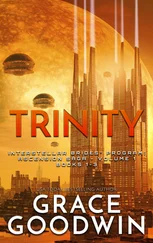“Ummm. How many Buffs we got left?”
“We might be moused.”
“Alice, old friend, we’ve having enough trouble hearing ourselves tonight.”
“Suppose. Hard to say. Baker’s dozen? They used Foxbats. Strange. My hunch is they were leading the Bears and Bisons in, looking for our advance interceptors. Found some Buffs instead. Musta surprised ’em. Next surprise is for their bombers.”
“Alice?”
“When we start throwin’ rocks at ’em.”
“Ummm. Plan down here is peashooters and Delta Air Lines.”
“Delta Air Lines?”
“Skip it.”
“Must say SAC produced some damn good crews. One of ’em nuked the buggers. Four Foxbats comin’ right up their tail. Made a perfect bomb run. Laid the egg—a megaton, for God’s sake—right in front of ’em. Poof. No more Foxbats. How’s that for a new air-to-air weapon system?”
“Used a bomb, did they? Maybe it saved the Soviet postmaster.”
“Harpoon?”
“I think I snatched a chicken-eater.”
In the Looking Glass, Alice paled. He looked at his primitive wall map, covered with multicolored dots. All he saw was green.
Until the moment just past, the crew of Polar Bear One had never dropped a live bomb—never seen one dropped, except in films. They operated almost entirely on theory, having studied the sterile statistics of escape velocities from both incident and reflected shock waves as well as the punishment their communications and navigation gear might sustain from gamma rays, X rays, skyflash, EMP, ionization, and other phenomena.
Kazakhs did a routine damage check, expecting none and finding only minor radio static as the atmosphere ionized above them. EMP was not a threat from this kind of blast, its effects coming only from extremely high-altitude explosions. He was mildly surprised that EMP hadn’t struck them hours ago, shortly after takeoff. But he assumed that, located in the far Northwest corner of the country, they had been outside the rim of the EMP circle, and about that he had been correct.
Except for the routine damage-control checks with each crew station, not a word had been spoken since Radnor’s quiet confirmation that the MIG’s no longer existed. The altimeter read six thousand feet and Moreau silently pushed the craft higher and higher, back on the northerly course. About four minutes had passed.
“Bank it left,” Kazaklis said.
“No.”
“Bank it left.”
“No. I don’t want to see it.”
“Bank it left.” There was no command in the pilot’s voice, just persistence and a haunting echo of curiosity. She banked left and Kazaklis slowly drew back the curtain.
The shock of the light stunned Moreau, and at first, she threw an arm up over her good eye. The moonless Arctic night was not dark at all, and the glare, even four minutes later and now forty miles away, overwhelmed all images. Then slowly, over the barrier of her arm, shapes formed and colors bloomed. In the kittywumpis tilt of the aircraft window, the horizon cut diagonally one way and the majestic stem of the cloud the other. Lightning strikes, purple and violet, darted throughout the pillar. The radioactive gases and debris and water vapor churned inward on each other, over and over, the full twelve-mile length, snakes coiling on each other, devouring each other, and then emerging in ugly anger again. It was satanic. As she looked upward at filaments burning at the edge of the troposphere, the power seemed to touch heaven and holiness itself. It was godly. But as she looked down, where the drogue parachute had floated and the mountain ridge now floated in tumult unimaginable, the power seemed to emanate from other regions altogether. No training film, no lecture, no mathematical equation—no amount of psychic numbing—would prepare someone for this.
Kazaklis could not remove his eyes from the mountain ridge. It was gone, gouged out, and in his mind he saw volcanic Mount St. Helens near his boyhood home and he saw his father and he saw his father’s belief in the eternity of nature, and he tried to believe in his father’s belief. But his father had never seen this, and Kazaklis doubted again. One flick of a finger, his finger, had caused this. He knew that thousands of fingers were poised now over thousands of unnatural volcanoes, unnatural suns. In the distance he could not see through the crud to the center where he had caused the temperature to soar to 150 million degrees But he could see the beginning of the flood. He could see where the heat of his own unnatural sun had cooled to the point where it no longer vaporized the northern ice into clouds but melted it instead, creating a gushing and raging new river, miles wide, that raced toward him across the once-frozen Mackenzie delta. He had turned Arctic winter into tropical summer. He cringed. And he doubted.
Moreau looked high toward the heavens once more, where the vapor cloud now stretched laterally away from both sides of the mushroom cap. And she knew that in the heights the ice vapor was cooling again, turning to water droplets that fell and froze once more into crystals and flakes. In the once-clear night sky she could see snow swirls falling from her cloud, a Christmas cloud with Christmas swirls from a Christmas gone. She felt ill and she brushed a fireproofed hand past another fireproofed hand also reaching forward, as the pilot and copilot pulled the curtain closed, together, mutually deciding that their psyches must be numbed again. Quickly. They sat mute, pushing their aircraft higher and away.
“Oh, Kazakhs,” she murmured a moment later, “it was so easy.”
“Yeah,” he said softly.
“Would it be so easy on a city, too?”
“Yeah.” He sounded like a little boy lost.
The return of the successor startled Harpoon. He had cradled the phone moments earlier and drifted off into a mélange of disconnected thoughts. He looked up, momentarily confused, and saw the Uzi first, then the professionally blank expression of the agent, then the unlined face of the successor, and finally the Cheshire-cat smile of the colonel.
“Need to send the orders, Harpoon,” the successor said.
“You’ve decided sir.” It was not a question.
“History won’t wait.”
Harpoon looked at the man sadly. “I hope history hears you.”
The man stared at Harpoon, uncomprehending again, not knowing whether to take umbrage.
“Be careful with the insults, admiral,” the colonel said. “It sounds like losing to me bothers you more than losing to the commies.”
Harpoon looked at the colonel without expression. “You’re a fool,” he said calmly. “An incredibly dangerous fool.” The man’s smug smile dissolved. He took a half-step toward Harpoon. Harpoon stood abruptly. The agent wobbled his Uzi between the two military men. “Why don’t you put that away, sonny,” Harpoon said. “It isn’t going to stop this riot.”
The successor looked on silently while Harpoon reached down and picked up the satchel he had carried out of the blue bunker in Omaha.
“Good luck, sir,” he said, and began to leave.
“You think I’ll need it, Harpoon.” The man had no rancor and no question in his voice.
“Oh, yes, sir. We all needed it tonight. A very large dose of it.”
“Past tense?”
“Sorry, sir.”
“Where are you going?”
“To my quarters.”
“We need to lock you in?”
Harpoon paused thoughtfully. “I’ve fired all my weapons,” he said after a moment. The words had a strange ring, even to Harpoon. He turned to leave. The brittle words of the colonel interrupted him.
“Haven’t you forgotten something, admiral?”
Harpoon cocked his head back at the group. The colonel was smiling again, as he gestured at the satchel.
Читать дальше












